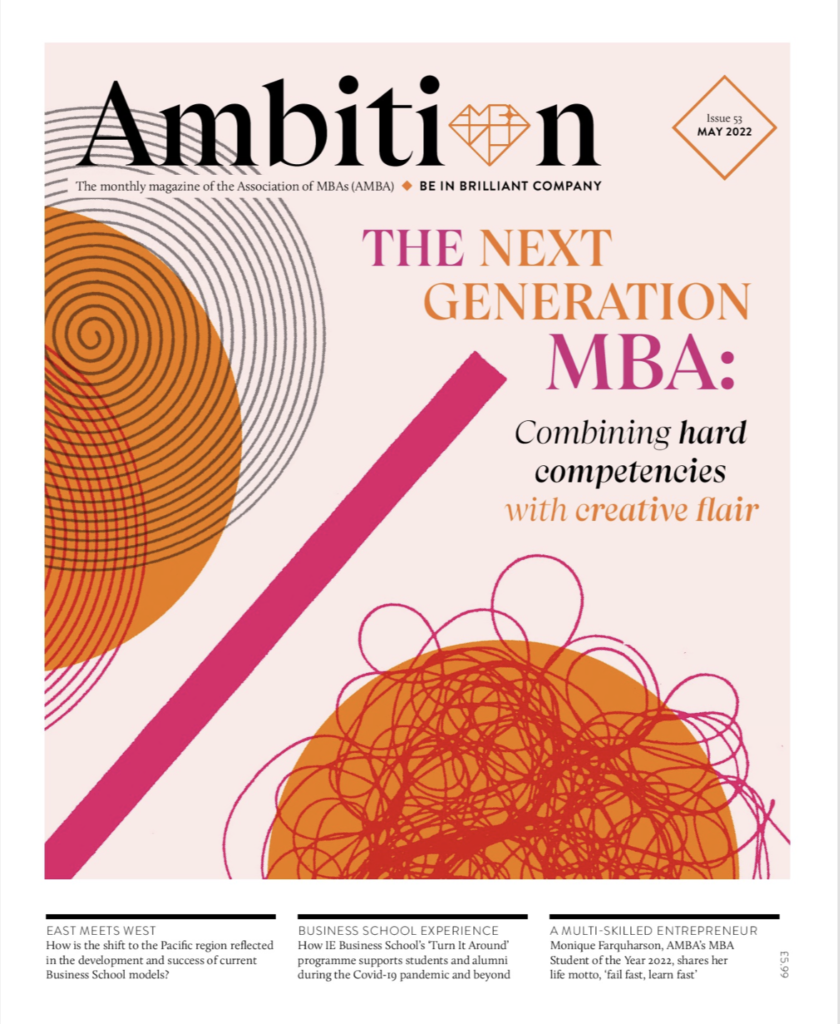How would you define ‘the new generation’ of business leaders? What skills, qualities, capabilities, and mindsets do they need?
Becoming aware and taking control of our mental processes is critical to our ability to choose our purposes freely, rather than being reactive. Members of the new generation will need a developed awareness of this inner dimension, so they can inspire and energise others, and be committed and purposeful in everything they do.
Another important skill is active listening. Being a great listener doesn’t just mean reflecting back what is said, or being patient and accepting pauses and short periods of silence. Being a great listener means being able to amplify ideas and energise the person you are listening to. In short, great listeners are a launch pad for their interlocutors’ thoughts.
POLIMI Graduate School of Management (POLIMI GSoM) is creating a ‘New Generation MBA’, designed to enable a new generation of leaders to meet the unique challenges of the 21st century. Can you tell us more about this?
The intersection between innovation and business is clearly one that greatly shapes the MBA experience at POLIMI GSoM. That’s why, together with The Mind at Work, a company which looks to strengthen the performance of teams and organisations, we decided to realign the purpose, values and culture of POLIMI GSoM itself.
This included redesigning our full-time MBA – our flagship programme. For the first time, this New Generation MBA integrates two important dimensions. On one side, it provides the hard competencies and skills needed to perform. On the other, MBAs are exposed to cutting-edge tools to elevate their performance by developing their awareness of themselves and others.
In addition to teaching core topics from a traditional MBA, POLIMI GSoM’s new full-time programme aims to teach students how to generate and sustain higher levels of meaningfulness, motivation and effectiveness in themselves, their teams and their organisations. Can you share more on this?
We want to help our students pursue a higher purpose. The programmes at POLIMI GSoM are being redesigned to be purpose-led, to train this new generation of business leaders to rethink the part they can play in society, and to go further than the idea of profit as the sole goal.
The full-time MBA will prepare future leaders to succeed, give meaning to their success, and help them to contribute to building a better future for all.
In the past few years, many organisations and business leaders have realised that they will need to rethink their purpose around the role they wish to play in society. Profit, equity, sustainability, and inclusion must co-exist, and these are values we wish to instil in our students.
How important do you think sustainability is, and in what ways have business schools adapted this into their programmes?
I believe that universities and business schools need to play a strong role as agents of change, with sustainability at the forefront of their agenda. business schools have recently been criticised for their inability to contribute to training a new generation of leaders who are able to combine shareholder value with making a positive impact on society.
Our new MBA programme is an unprecedented response to this criticism, and has the potential to pave the way for a new approach to management education that is suited to the challenges confronting society, such as climate change. Sustainable initiatives are at the heart of the philosophy we endeavour to pass on to our students – they act as a compass guiding our choices.
What do you think sustainable leadership looks like?
The perception of what constitute essential qualities in leaders has changed a lot in recent years. Until a few years ago, Business Schools typically prepared students to become knowledgeable about functions – education was very much based on hard skills.
However, both the world of business and wider society are going through sweeping changes. When considering what is required in response to these challenges, managers point not only to hard skills, but skills such as the capacity to engage people, to understand motivation, and to connect with emotions – especially in highly charged situations. Sustainable leadership involves genuine personal and professional growth, a personal journey of discovery – not just so that you can make a difference, but so that you can become the difference.
Given the growing climate emergency, do you think businesses, and by extension, business schools, have a role a play in helping communities to respond to, and recover from, natural disasters?
Business schools have a responsibility to instigate change, and they cannot teach sustainability if they do not put it into practice themselves. At POLIMI GSoM, we are committed to propelling sustainable initiatives. The business school has been awarded the B Corp Certification – a prestigious recognition of an organisation’s commitment to sustainable development and building a more inclusive society.
POLIMI GSoM is the first Italian business school – and the only European school – to have been accredited, and is one of just a few worldwide. B Corp companies form an international community of organisations with the common goal of combining profit with a search for the collective wellbeing, and caring for the environment and society as a whole.
POLIMI GSoM intends to use its status as a Certified B Corporation to accelerate as a sustainable organisation, enhancing educational methods and training programmes on the topics of purpose, sustainability and inclusivity, while continuing to work with companies to achieve the same goals.
How did the Covid-19 pandemic change your school for the long term – and what have been your most important lockdown learnings?
Despite the pandemic, 2021 represented an important year for our school, as it laid the foundations for some big news. In 2021, our School expanded nationally, starting from the Milano Bovisa campus, our nerve centre, giving life to local hubs in the Veneto, Lazio and Puglia regions. The goal is to enhance our vocation for innovation and offer students and professionals places to train, study and meet up . The process will reach its peak this year, with the inauguration of a new branch in Milan’s Navigli district.
The most important lesson, however, has proven to be that the new generation needs to be ready for change. This is a lesson that Covid taught us in the hard way. Things can change unexpectedly, and organisations should learn to be adaptive, changing the way they work, encouraging people to be brave and innovative. Students need to see change as an opportunity to explore, not as an obstacle to override.
Do you think recent events have moved us to a more democratised approach to business education? How can you see this evolving?
The commitment towards people, society and the environment should be typical of all business schools: parameters linked to sustainability must be included in the organisation’s mission as a core competence for tomorrows’ decision-makers.
Aspiring leaders should be prepared to learn and educate themselves continuously, and be extremely adaptable to change. We know that the future of work is going to be more agile and flexible, and far more reliant on digital technologies. It is therefore essential that aspiring leaders keep up to date with these ever-changing developments in order to stay relevant and ahead of the game.
How do you believe technology will continue to impact and disrupt the business school environment?
In our modern world, it is crucial that businesses embrace digitalisation, so that it is easier for managers and professionals to access material. Digital tools allow people from anywhere in the world to learn, interact and participate in meetings, conferences, and work environments by replicating the same experiences, and offering the same takeaways that they would get from physically attending.
I imagine a ‘phygital’ future, which seamlessly integrates the online and on-campus experiences. In fact, at POLIMI GSoM, technology has always been something that we have embraced.
It started back in 2014, when we launched the first Executive MBA in digital learning in Italy; a few years later, it resulted in a wide portfolio of blended programmes – providing digital expertise that proved to be essential during the pandemic – and in FLEXA, a continuous learning platform appraised by AMBA as one of the most innovative worldwide.
Thanks to top-notch technologies, today we offer our students a blend of on-site activities and online classes, creating an holistic experience which is both immersive and responds to students’ increased need for flexibility.
That’s why the new campus, which will be inaugurated in the Navigli district, is designed to create a seamless experience between on-site and online learning – both for students and professors.
Considering the importance of lifelong learning, what is your strategy for enabling continuing learning among your alumni networks and why do you believe this is important?
FLEXA is a programme that is not only available to current cohorts and professors, but to our alumni as well. Providing access to free continuous learning is another example of how we are trying equip everyone to have a positive impact on society. Alumni can share their background and career plan with the digital mentor.
Analysing their hard, soft and digital skills, FLEXA will identify their current profile and the gaps that need to be filled to bring alumni closer to their goals.
After six months of progress, alumni will be able to carry out a new assessment and reset their training pathway, if necessary. With continued access to FLEXA, they can log in again months down the line and receive up-to-date knowledge in a range of topical areas.
And what are the next steps for you as a business school leader?
What motivates me is the idea that business schools can have a strong impact on society. I believe I have a responsibility to shape a better future for all, and am determined to generate meaning in all of my initiatives. Meaning matters and, as a leader, if I can project that among my colleagues and community then that is one of the greatest incentives. It is important that I can give people a purpose beyond their everyday jobs, so that they can then go on to project these values to others – positive influence is key.
What are the biggest challenges facing international business schools?
I think that the biggest challenge that business schools are facing, and one of the trends in higher education we’ll see over the course of 2022, is innovating and transforming educational methods so that business schools can help future business leaders, managers, and entrepreneurs to understand that profit should not be the sole goal of an organisation. Business schools must increasingly underline their strong role as agents for change committed to building a better and more inclusive society.
My advice is to find your own ‘why’ and to design a path that is meaningful for you to follow. And that’s exactly the point of our New Generation MBA. A fundamental part of our approach is to help our students know how to recognise and choose purpose, to harness their will consciously, embrace authentic values and strengthen their inner compass.
Inner work complements, empowers and enriches everything you do in your job and in your life. Our New Generation MBA gives candidates the tools to choose to pursue something more than success and profit – the tools to find their own path.
Do you feel optimistic about the future of business, business schools, and the economy?
I truly believe that the number of schools which go further than just promoting a successful career to promoting a wider, collective, elevated impact of an individual will increase in the next decade. This realisation from companies has been a long process, and it is not one which will be completed overnight, but we are now seeing an increasing awareness about prevalent issues within society. However, it has been difficult for companies to achieve these goals by themselves. In order to make significant changes, businesses schools, alongside the government, NGOs, public administrations and civil society, need to join forces to make a significant impact.









